The Fire This Time: Self-worship, cannibalism and ritualistic human sacrifice in the Age of Consumerism.

By Robert Simmons
Fame cannot accomplish what is asked of it…Every new famous person who disintegrates, breaks down in public or loses their mind is judged in isolation, rather than being interpreted as a victim of an inevitable pattern within the pathology of fame.
The School Of Life
Table Of Contents
- The Way We Look To Us All
- Are We Not Merciful?
- For Thirty Pieces of Silver
- The Most Unkindest Cut of All
- When Everybody Loves You, You Could Never Be Lonely
- To Be or Not to Be Consumed, That is the Question
- Here We Are Now, Entertain Us
- What’s Your Character’s Motivation?
- Ain’t Nothing Like the Real Thing
Dig into a dusty old history book and (horrible atrocities aside) you will find it filled with people famous for inventions and discoveries, creative works and profound ideas. Since Consumerism came to own us, we now have an internet filled with people famous for simply being famous.
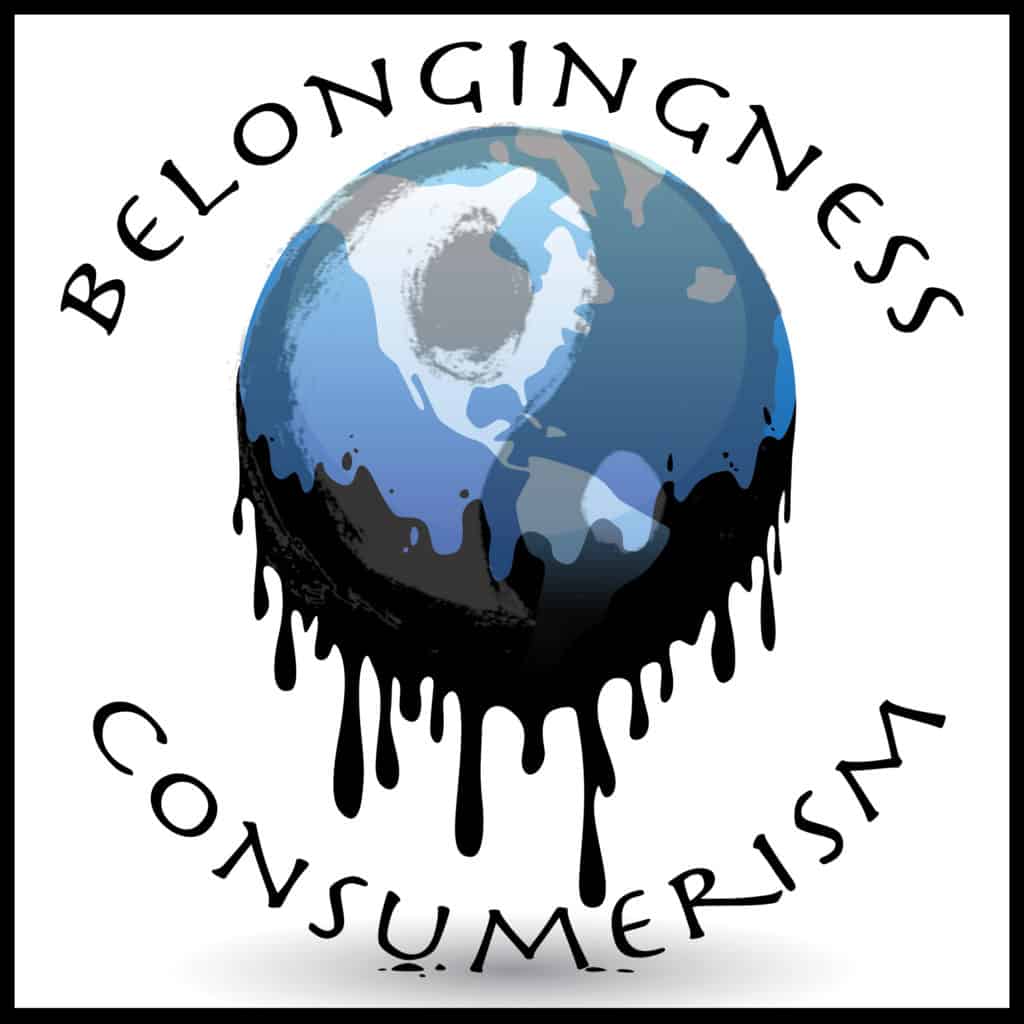
The pathology of Fame is yet another predictable negative externality generated by our Consumerist model of society. Consumerism and Belongingness do not mix – they are Oil and Water. Consumerism currently hovers, like a thick sludge, along the top, but Water is Life, and cannot be smothered by the pursuit of purely external gratification.
As Children enter the world, they come with a built-in wireless charging technology, ready to absorb Belongingness – the power source that drives all of us to be human. Much too soon, children get plugged into Consumerist devices designed to syphon this power off, in order to fulfill a Consumerist agenda of Profit and Economic Growth. In an attempt to find Belongingness, children often turn to Consumerism, believing that It is here to serve them, but Consumerism is here to be served.
Consumerism is about Control, and as such, follows the rules of Control. It has divided us from Belonging in order to conquer us one by one; once isolated, it uses our need to belong against us. Many of us are easy targets, but none easier than our children. Fame, like all drugs that fall under the category of ‘False Hope’, is simply bait on the end of some colorful consumerist hook. The reason why we take this bait, and allow ourselves to be consumed, is the subject of this article.
As soon as I go out into the world, I belong, in a way, to everyone else.
Lady Gaga
The Way We Look To Us All
Shakespeare had it right: all the world is a stage, where we strut and fret our designated hour, then exit (sometimes with a bang – usually a whimper) so the next group can enter. The arc of this story is long, and whether it bends towards justice is not immediately apparent, but one thing is certain: we are the actors currently on this stage – this is our big scene – and if we wish to affect the overall plot in any significant way, it behooves us to understand what the hell is actually going on here. In order to facilitate this process, allow us to break down the script for a moment.
Fight. Flee. Feed. Fornicate. The whole of human existence can be summed up in four words, and through these basic themes the drama of all life has unfolded. The characters (that’s us) are all drug addicts, with a single driving motivation: to get MORE. The MORE we get, the MORE we want, until conflict inevitably arises: man versus man, man versus nature, man versus himself. It makes for lots of non-stop drama, but in every way, is as predictable as the average B Movie.
In our pre-conscious human history, MORE simply meant more ‘survival’ – to survive one more day. Besides getting eaten, one could also die from hunger or thirst or exposure to the elements. Belonging to a group was the only way to cheat Death.
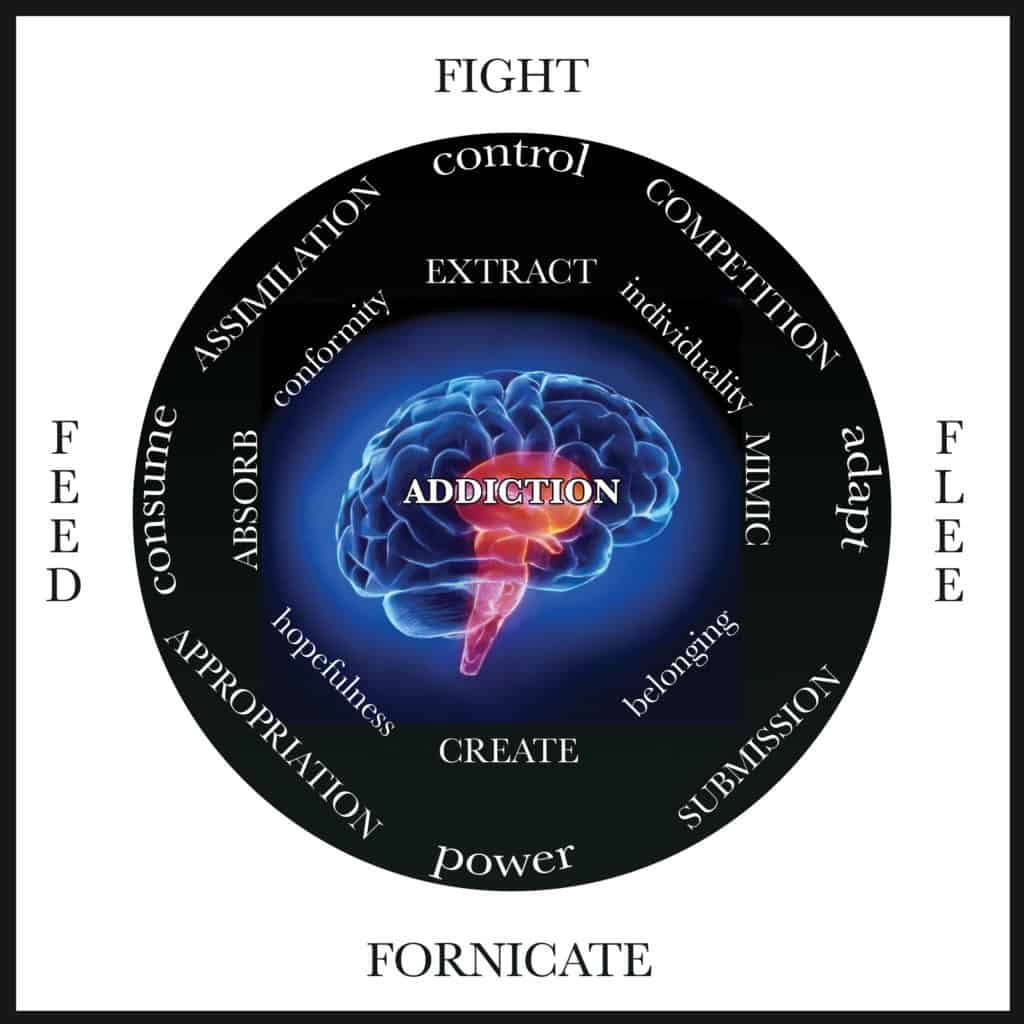
To gain Acceptance within the group, people had to learn to conform, show loyalty, and be of value; through these sacrifices they found rewards of Self-Esteem, Friendship, Intimacy, and Recognition. Without Belongingness, none of us would exist; on our best day, we would be a pair of ragged claws scuttling across the floors of silent seas. We should we all get down on our knees and pay homage to Belongingness. Instead, we bow down every day to Consumerism.
Having a safe enough base to explore is essential to growth and health as a human. In the absence of that base, people become overly dependent on the protection, love, affection and esteem of others, which can compromise growth, development and meaning in life.
Scott Barry Kaufman, How to Restore America’s Humanity
Are We Not Merciful?
Throughout history, thuggish characters, euphemistically known as ‘leaders’, put themselves out in front of various groups of people born to seek acceptance and be of value to others; instead of harnessing this power for the good of every one, these so-called ‘leaders’ utilized it to garner MORE for themselves.
Belongingness is how we turned our individual weakness into a collective strength; Consumerism is how we have turned Belongingness into our individual weakness, for the benefit of these few who would prey off of their own kind.
The latest ‘con’ involves Freedom, Liberty, and the ‘Pursuit of Happiness’. In this con, we are told that being an ‘individual’ is what makes us ‘Free’; groups are for ‘communists’, ‘socialists’, terrorists, immigrants and other such ‘gangs’. In reality, calling people ‘group-lovers’ is equivalent to calling them water fanatics, food junkies, or air freaks.
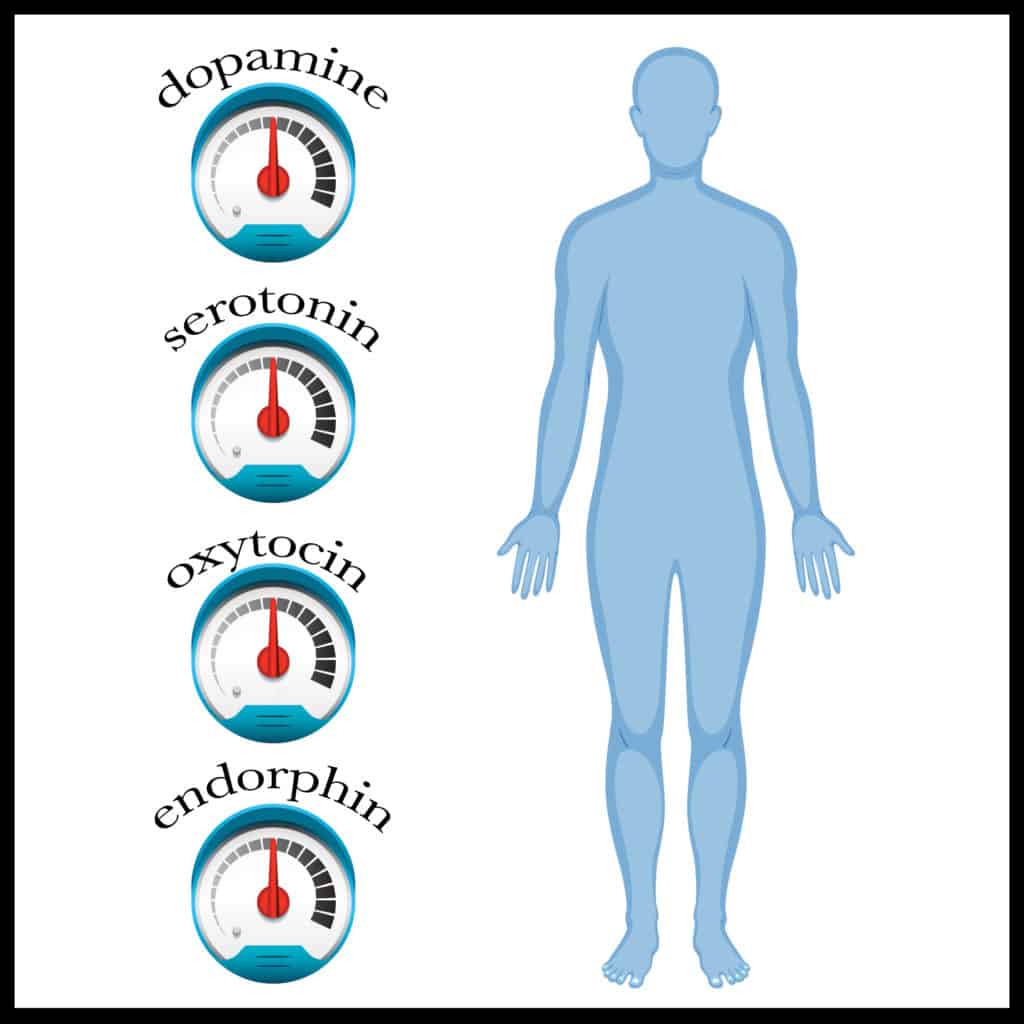
Once we have been divided – forced to stand as individuals – our safety, security, and belongingness are no longer assured. Cortisol automatically triggers anxiousness about our future. We predictably head toward the only game in town: the watering hole the lions have built for us. The lions also charge rent to the leopards, snakes, crocodiles, and hyenas, and that leaves the rest of us – the cows, pigs, sheep and chickens – to crowd together, get fattened up on ‘Consumerism’, and serve our ‘economic’ purpose.
No, we are not merciful. There only two logical human strategies to deal with Uncertainty: allow people to band together, in order to help create more Certainty for themselves, or establish a base-level of Certainty, in order for people to stop obsessing over their ‘deficiency needs’ and begin to strive toward their ‘growth’ and ‘transcendence’ needs. Instead, we choose to divide ourselves, foster Uncertainty, then give us that little bit of hope – by providing ‘agency’ (education) and an escape route (employment) – to procure our own Certainty. Why divide us? So a handful of outside ‘predators’ can extract ‘rent’ and interest and profit ‘off the top’.
To be fair, though, we are all predators. Everybody has a hungry heart, with constant emotional hunger pangs – those comedown feelings of withdrawal that manifest as boredom, loneliness, angst, restlessness, and anxiety.
Constant hits of Oxytocin, Serotonin, Dopamine, and other chemically addictive rewards drive this thirst for MORE. Existence forms a natural hierarchy as our addictive drive for MORE pushes us over the next hurdle: to overcome then feed off whatever existed before us. Once the collective effort of humans subdued every other life form, MORE dictated that we begin to feed off each other. Oppression has been the result. The unregulated consumption of the planet has been the other.
In Learned Hopefulness, Dan Tomasulo defines ‘Hope’ as the sole emotional tool in our survival toolkit, designed to kickstart us to safety in times of uncertainty. Hope is only activated, however, when there is some perceived path to safety – a way around the ‘threat’ – which necessitates a confidence in one’s abilities to execute this ‘escape plan’ (identified as ‘agency’ plus motivation). Consumerism corners us with no other choice – it is the only game in town – but it is designed to leave us with enough of an opening that we choose it over fighting to resist it. Education is there to give us agency, and money has been the motivation thus far, though we are finally realizing that ‘extrinsic’ motivation is not sustainable. ‘Intrinsic’ motivation – or ‘passion’ – is the only way toward sustainable motivation. Passion to create falls on the Belongingness side of the equation.
For Thirty Pieces of Silver
While white people shoot up schools, blow up buildings, and storm capitals, black people get shot for things like sleeping in their cars.
BLACK LIVES MATTER. This is a statement of Belongingness. Within Consumerism, it becomes merely a slogan, something trending, something businesses might endorse in order to get more customers or keep the ones they already have. At best, it might make a good bumper sticker or T-shirt. The actual point – that all of us belong here equally – is rendered meaningless in a Consumerist World.
The statement BLACK LIVES MATTER is, of course, the truth, but in a Consumerist World, the truth does not matter, because you cannot sell it. This is why Truth (like Facts) have become something very fluid now, because in a Consumerist World they only have value when they are artfully packaged to market some tangible commodity. To a consumer, actual Truth might even represent an obligation – the exact opposite of what they are looking for – the equivalent of telling them they need to work on someone else’s problem for free. Until we make Belongingness something of tangible value, by tying all our fates together (aka ‘Interdependence’), Truth and Facts will continue to be cherry-picked in order to serve some special-interest sales pitch.
Meanwhile, a music ’producer’ pays black youth to ‘rap’ something angry, misogynistic and criminal into a microphone. Inexplicably, we end up with gangs of bored white skater punks looting and defacing property in otherwise quiet, comfortable neighborhoods; BLACK LIVES DO NOT MATTER, yet somehow black Anger about it does.
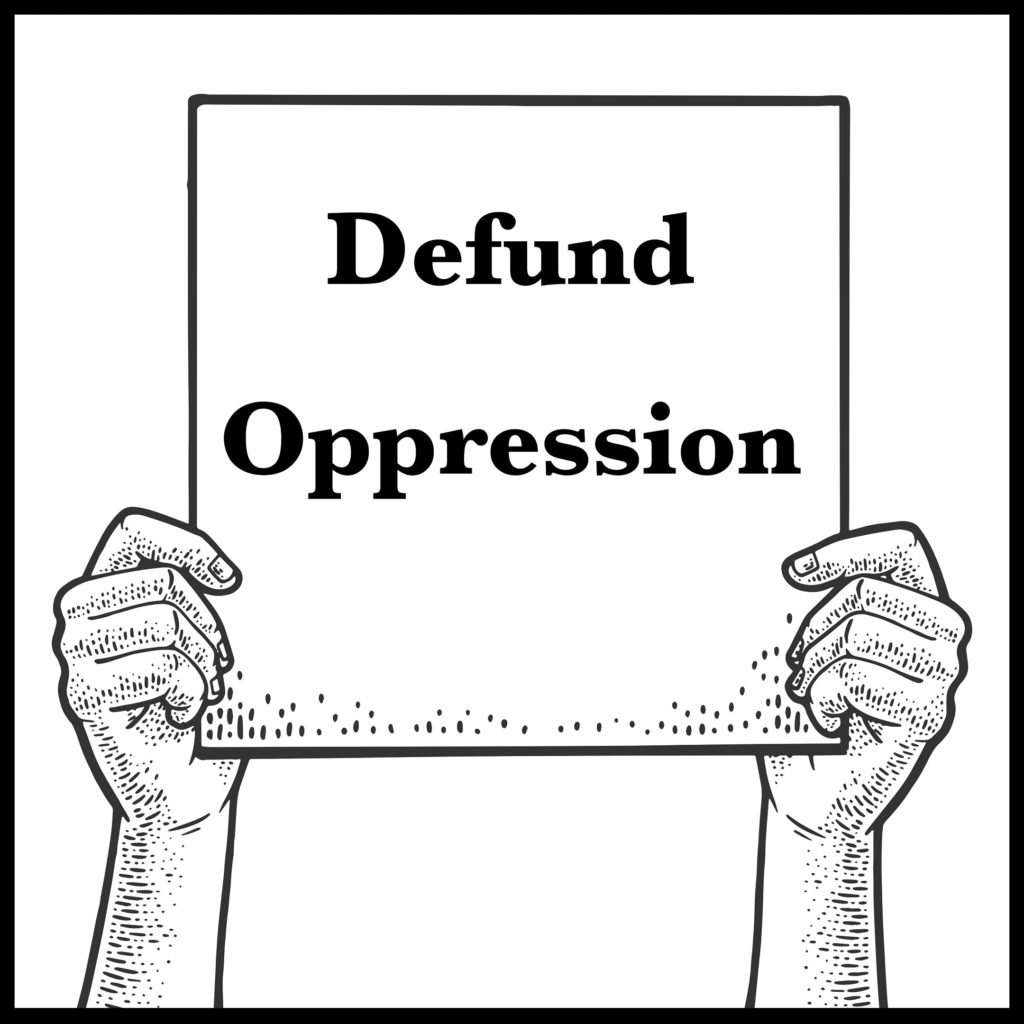
Feelings are all about Facts, and all about Truth, but it takes emotional intelligence in order to see the connection. Anger resonated between these two disparate populations, because Anger has to do with ‘not being understood’. Again, this is a statement of Belonging – about how our feelings are the only Universal Truth, because they represent the only thread (or commonality) that resonates within all of us; but of course, Consumerism don’t care about your feelings.
Through Consumerist Media (news, cinema, television, music, literature, and art) the black image or brand has too-often been portrayed as something dangerous. This image exists outside our conscious mind – it is an image of fear. It resides within our Fight / Flight protocol – an unconscious survival mechanism designed to steer us around any perceived danger. Applying Belongingness would help erase this archetypal image, but unfortunately, Belongingness works best when people are in close proximity to one another, which Consumerist Segregation has made difficult. Evolutionarily, anything outside the group is inconsequential until it is seen as a threat to the group. Good news is irrelevant news. News of danger lurking gets more readily absorbed because it falls within this Fight or Flight radar. Three-fourths of whites do not have any black friends as references; meanwhile, many are likely fans of black musicians, athletes, entertainers, politicians et al, but somehow their feelings do not care about these facts when they see a strange black man on the street. The Truth: All of us have beliefs that are not even grounded in our own experiences. The only antidote: Belongingness. People are hard to hate close up.
The Most Unkindest Cut of All
When economists talk about negative externalities, they are implying that choices often come with unforeseen consequences, but this is not true. All the negative externalities that Consumerism produces are easily predictable; the reason we do not correct them is that destruction is necessary to maintain the Consumerist Imperative of Profit and continuous Economic Growth. ‘Negative Externality’ is just another euphemism used to describe incredibly devastating (and avoidable) atrocities: War, Genocide, Starvation, Global Warming, Violence, Accidental Deaths, Addiction, Heart – Lung – Liver Disease; the list is quite extensive. War, Oil, Tobacco, Alcohol, Prescription Drugs, Healthcare, Conflict Resources: these are all very profitable while at the same time incredibly toxic to people. Make no mistake: Consumerism is here to be served.
Social isolation has an impact on health comparable to the effect of high blood pressure, lack of exercise, obesity or smoking
John Cacioppo, Loneliness: Human Nature and the Need for Social Connection
When Everybody Loves You, You Could Never Be Lonely
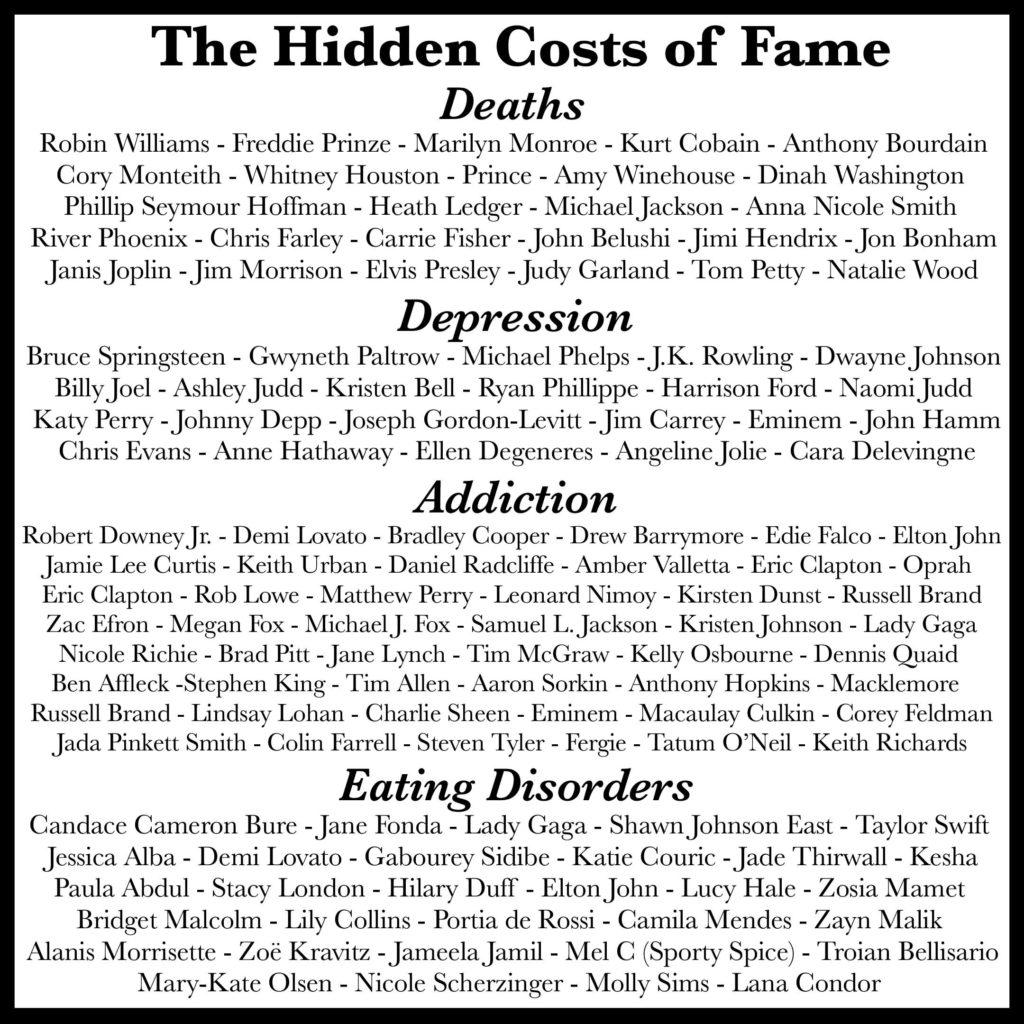
As a species, we need emotional sustenance (aka social connection); without it, we will feel emotional hunger pangs. Both physical and emotional pain register in the same area of the brain; the emotional pain of loneliness is no less real than the distress caused by physical starvation.
It is a neck-and-neck race to see what Consumerism will devour first: the planet, all of us, or simply Itself. Even now, A Working Class Hero is no longer something to be. In 2012, a study found that kids age 10-12 wanted to be famous more than any other future goal. Again, this is a statement of Belongingness: to be adored, valued, and recognized, simply for being oneself.
Fame has now become the quintessential American Dream – certainly the pinnacle for anyone trapped on the lower rungs of the social hierarchy – and in the eyes of our children, famous people are proof positive that Belongingness can be obtained in a Consumerist World. What is the point of telling them otherwise? If one is not born a predator, one will eventually be eaten alive, either way. We should at least allow our children the ‘liberty’ to be served up as filet mignon; anyone can be ‘ground round’.
My self-esteem was shot. I was depressed, anxious. I started to have panic attacks right before getting onstage, or right after leaving the stage. Basically, I felt I wasn’t good enough.
Selena Gomez
To Be or Not to Be Consumed, That is the Question
There is risk involved when selling any goods or services, but selling yourself as the product is especially tricky. Allowing others to feed on you directly can be difficult to regulate. Soon, there could be nothing left of you, or worse, nothing left of you that anyone wants.
[Imagine] your worst experience in high school, when you were being bullied by those 10 kids in high school; fame is that, but on a global scale, where you’re being bullied by millions of people constantly
Megan Fox
For every kid desperate for emotional engagement, there is another desperate to be engaged mentally – the first is lonely, the second bored.
For most people, boredom is a passing, nearly trivial feeling…But boredom has a darker side: Easily bored people are at higher risk for depression, anxiety, drug addiction, alcoholism, compulsive gambling, eating disorders, hostility, anger, poor social skills, bad grades and low work performance.
Anna Gosline, Scientific American
Here We Are Now, Entertain Us
Boredom is the signal we need MORE in the mental stimulation department. When the withdrawal symptoms of boredom strike, and we do not act, the next stage of withdrawal could lead to complete physical shutdown (depression). At that point, we are forced to seek artificial (external) chemical stimulation, either legally or illegally. We know about ‘controlled’ substances, but right now there are many uncontrolled substances out there: addictions like social media, video gaming, internet surfing, and online shopping. Consumerism’s quick fix approach keeps us artificially strung out on small addictive hits of dopamine, or even serotonin – like any drug, however, the more we use it, the less effective it gets.
This need for increased stimulation, in order to fend off boredom, has dropped our attention span from a miserable 12 seconds to an even more pathetic 8 seconds. Ironically, spending an hour diving deeper into one subject, instead of getting 450 superficial ‘hits’, is what our brain really prefers. Boredom, in a Belongingness World, would drive us toward reflection, then onto discovering our ‘passion’, where our intrinsic motivation would ‘kick in’; the dopamine would be flowing, and all of us would be creating and crafting, inventing and innovating, philosophizing and hypothesizing. Instead, Consumerism has tempted our brains away from their true purpose.
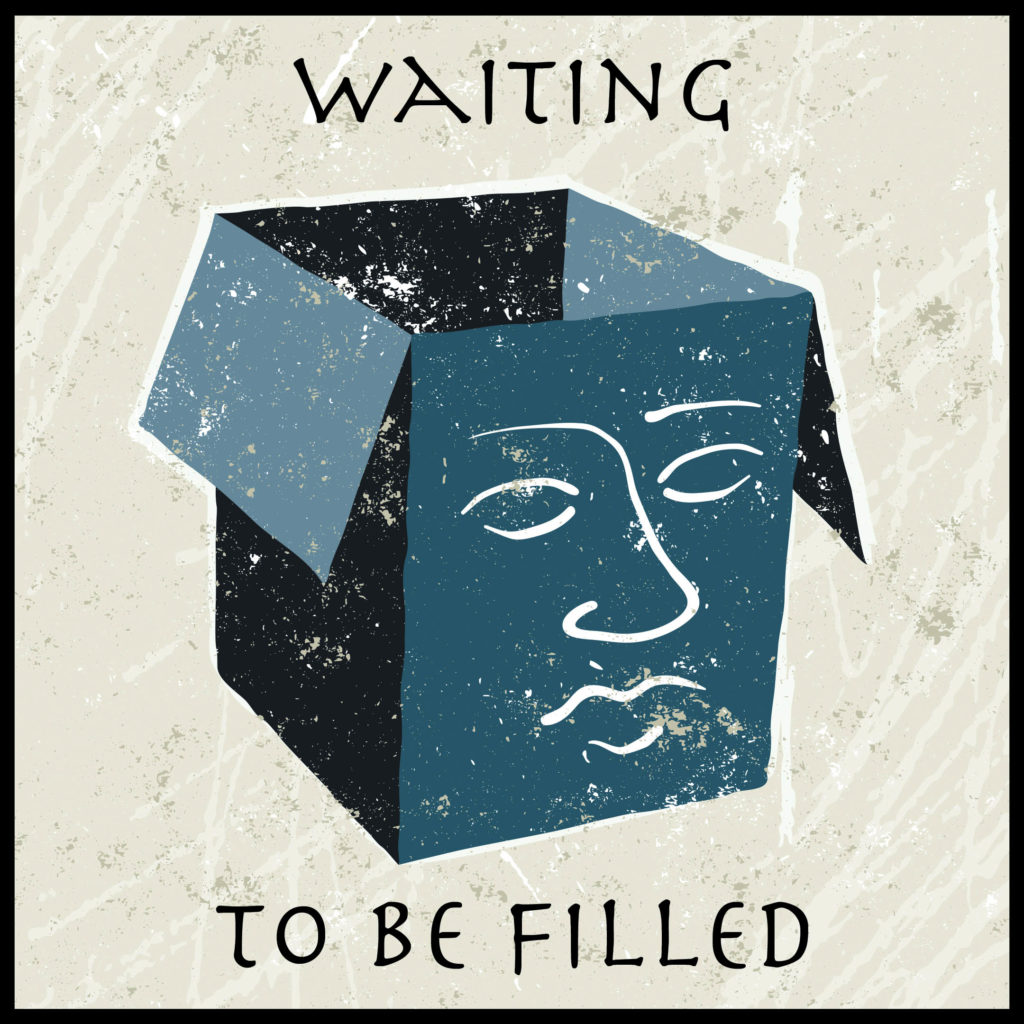
We are ‘heavy bored’. Our brains have fallen and can’t get up. We are obese with socially addictive artificial additives that work the same as the junk food we also consume on a daily basis, but our mind is not meant to be a stomach, with things passing in and out of it. As long as we are willing to remain fat and artificially happy in our ignorance, Consumerism will continue to serve up a slow drip of sedating chemical addiction, in exchange for our total submission. We deserve better.
Hopefully, the point of human existence is not to simply consume everything on the planet, until we kill it or it kills us. In order to rise above the mentality of a virus, we need to manage our addictive drive for more by learning to seek the MORE from within ourselves. Self-actualization – to realize one’s highest individual potential, is the first step toward the larger goal of combining our Belongingness with our Self-Actualization, in order to achieve Interdependence.
For better or worse, our ‘human’ nature is designed to accelerate us in whatever direction we decide to point ourselves. The more we attempt to improve ourselves physically, mentally, and emotionally, the more we will continue down these healthier (and sustainable) paths. To continue seeking the MORE from outside ourselves is the equivalent of pointing our entire species toward a cliff and hitting the gas.
As humans, we need self-determined, effective connection with the world. We need to be engaged, mentally occupied, giving expression to our desires and exercising our skills and talents…Boredom is a call to action…a push toward more meaningful and satisfying actions.
John Eastwood, Out of My Skull
What’s Your Character’s Motivation?
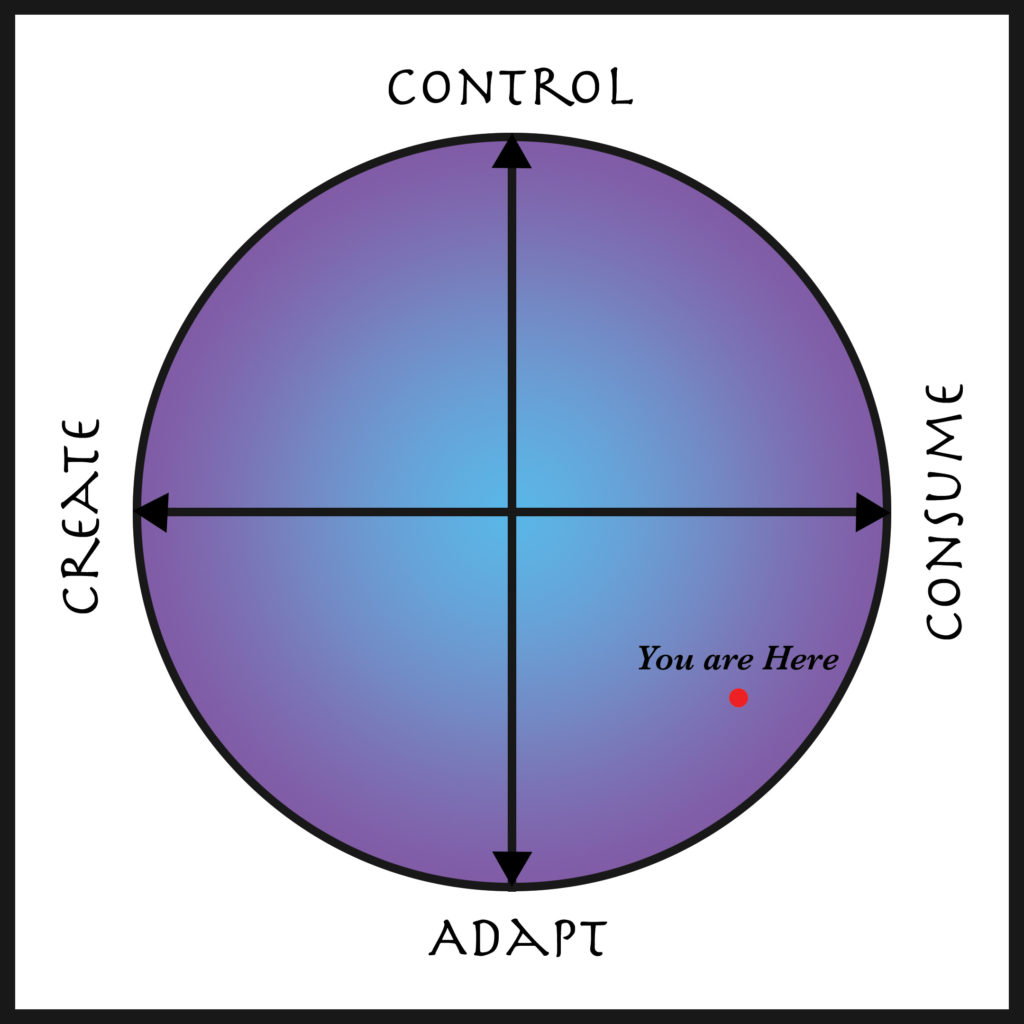
Prior to the influence of Russian Konstantin Stanislavski, acting merely mimicked emotions and captured human interaction as it appeared from the outside. Slowly, the method of actors changed to an internal focus – to call up real emotions in various ways – which began to bring characters ‘to life’, even though they only lived up on a theater screen. The internal language of emotion, which resonates within all of us, is why we connect to these characters. Even though they are not real, we can still ‘relate’ to them.
There is a more recent discernment between our ‘need to belong’ (a desire to be consumed within something) and our ‘need to relate’, where the ultimate desire is to connect – a shared venture where each person remains intact in the exchange – considered a more healthy form of interaction.
Research shows that people with a high need for relatedness are not anxious about social exclusion, have a greater sense of security with their immediate social network, and are more confident that they are valued by others.”
Scott Barry Kaufman, Scientific American
Ain’t Nothing Like the Real Thing
It is hard to argue with a Consumerist. Consumerism has a religious cult-like following that bypasses reason. Consumerists might tell you (with a straight face) that without selfishness, there would be no chance for charity to occur. Without individualism, all those retired sports figures and business gurus could not get paid to come explain the concept of teamwork to a bunch of workers who, by the way, already innately know everything about teamwork – it’s only the boss that needs the lecture.
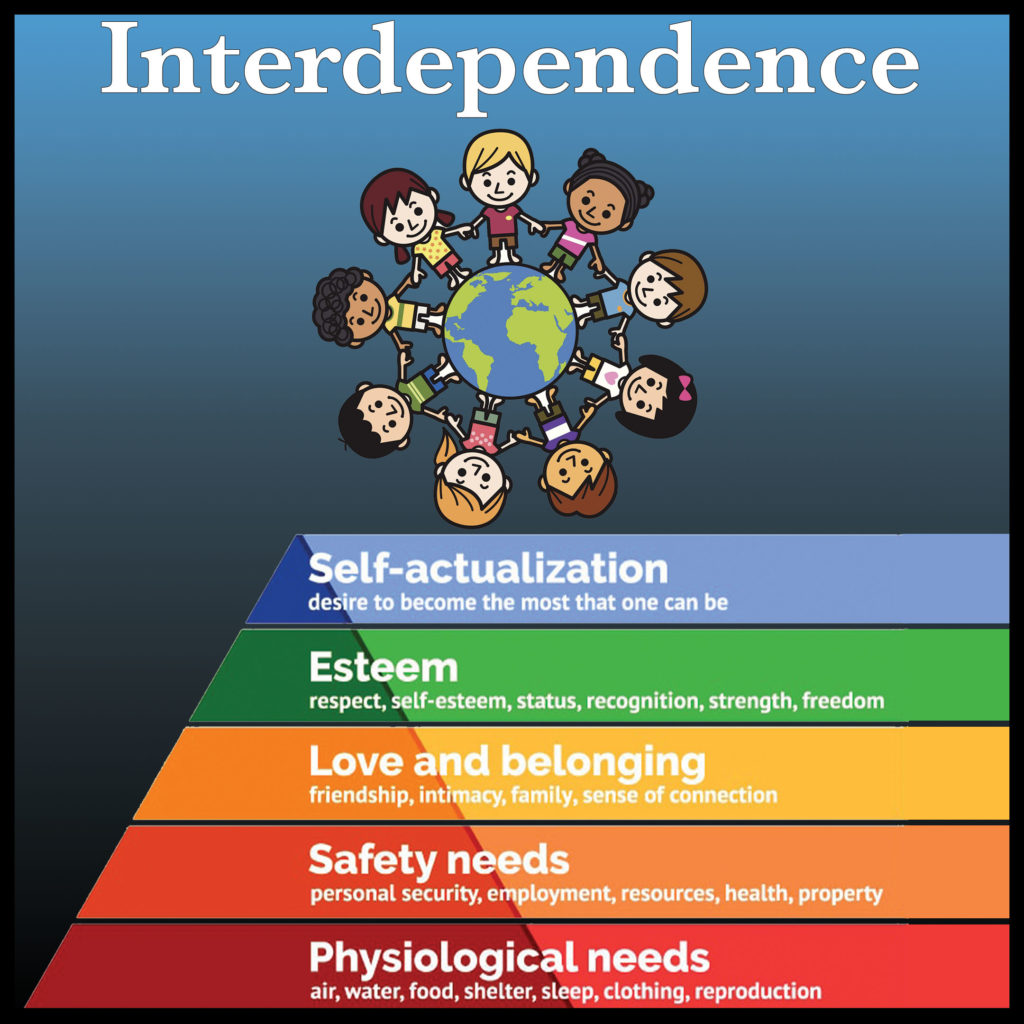
Look at yourself. You are already an individual. If this is your ultimate purpose, congratulations, you’ve already achieved it. Now what? Successful Teamwork is about each individual being the best version of themselves, in order to make the team better – to retain individual autonomy but allow for each person’s success to be a win for the group as well. This is the definition of Interdependence.
As per their Liberty, those who truly feel ‘weighed down’ by the group and wish to seek Independence, rather than Interdependence, this could easily be accommodated. We could implement the practices of our ancestors and let each of them take as much as they can personally carry, and send them packing, out into the nearest desert or frozen tundra, where they can enjoy complete independence. Perhaps we could even shoot them into space in a couple more years. Allowing these pseudo-independent types to prey upon the rest of us from the outside is parasitic and predatory and needs to stop. Let them use Go Fund Me and give the rest of us a chance to exercise our ‘charity’ – which could only get better once we all get paid a living wage.
Will we be able to start seeing each other as whole people and not products to be consumed? The answer is ‘yes’, if we have a system that rewards up for doing that, and not one that exploits us purely for monetary gain.
The Third Option has the remedy for what ails us: instead of redesigning people to fit our current system, let us design our system for the people we already have. No other political party or societal philosophy offers concrete solutions to the critical flaws in our collective reasoning. The only possible conclusion must be that our ‘leaders’ think we are doing okay. For the record: We are not doing okay. We are not okay.

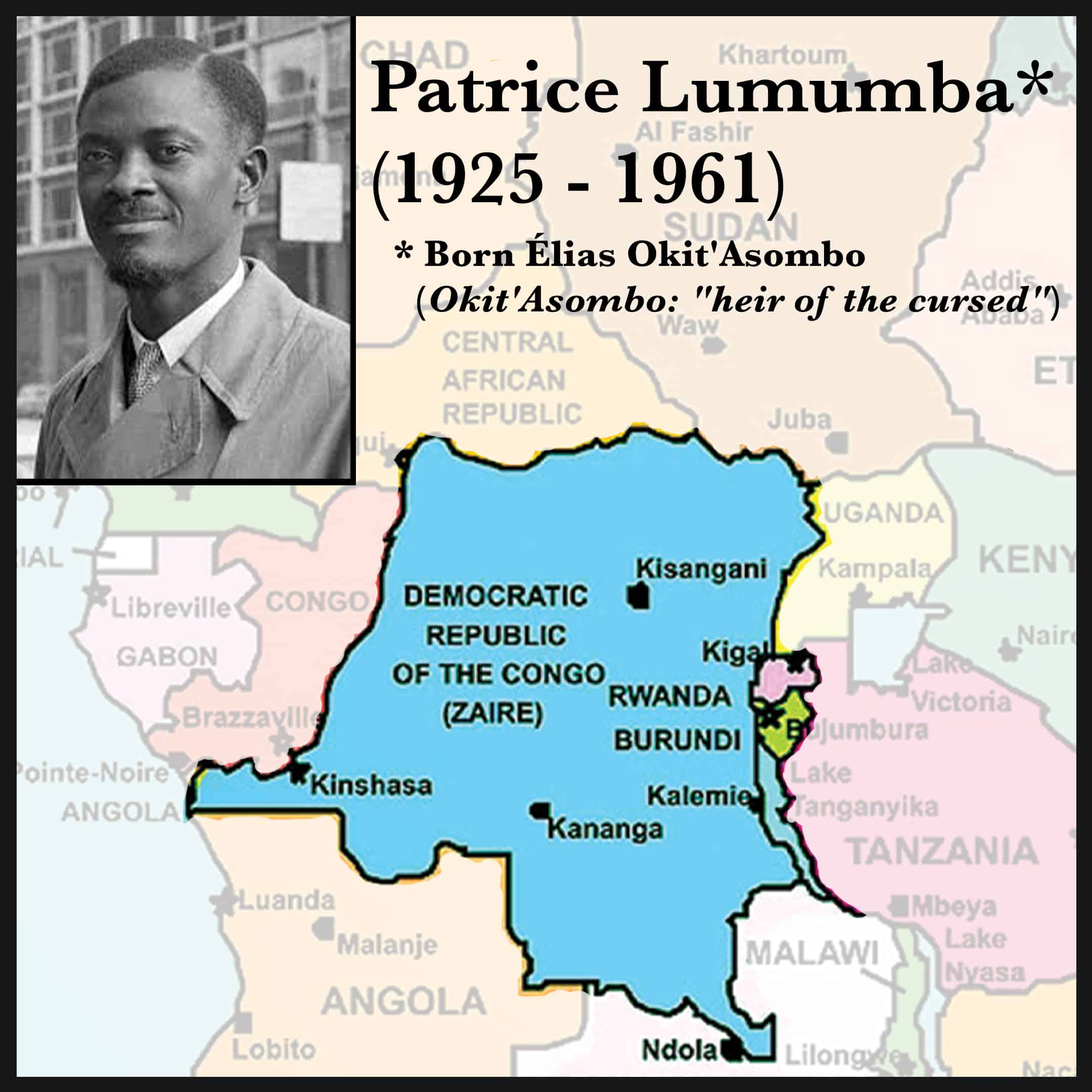 A ‘Cursed’ People: the Democratic Republic of the Congo
A ‘Cursed’ People: the Democratic Republic of the Congo